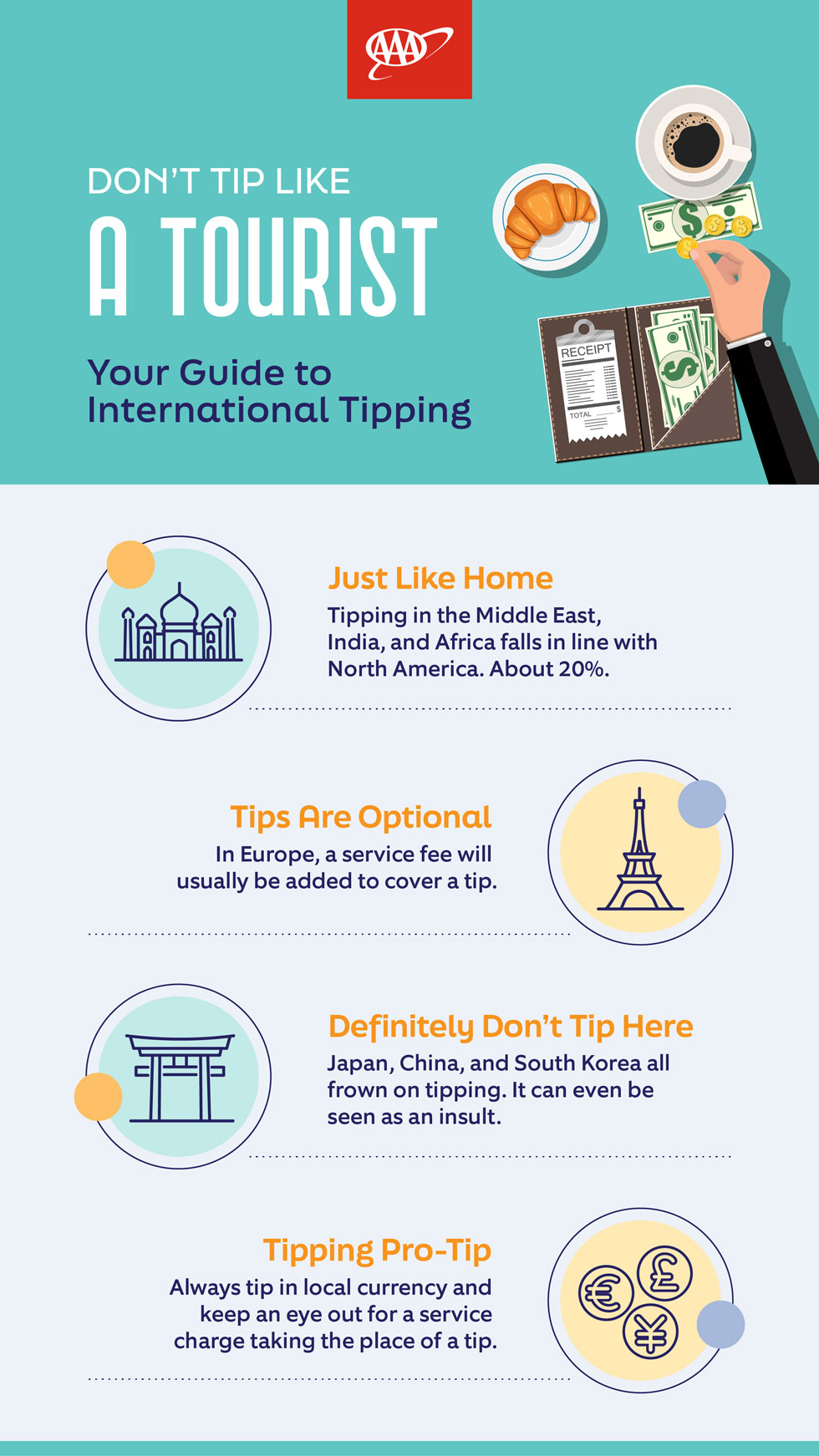
Many of us struggle with tipping protocols in the United States, but it can be even more perplexing when we travel internationally. Tipping cultures vary from region to region, and from country to country. In some countries, it’s disrespectful to leave a tip, while in others it’s insulting to not leave a tip.
Much like in the U.S., there’s not a universal standard for when and how much to tip internationally. Service charges are common, particularly in Europe, but these may already be included as part of the room rate or the price of menu items, which can add to a traveler’s confusion and uncertainty about tipping.
Let’s take a look at the expectations for tipping and not tipping on an international trip.

Yes, leave a tip
n the Middle East, India, and Africa, tipping is customary and expected. There are nuances from country to country, but the practice is generally in line with the United States with regard to who, when, and how much to tip on your travels. Think bellmen, servers, bartenders, and housekeepers.Tipping is also standard practice in Canada, the Caribbean, and Mexico, particularly in tourist areas. In these areas, tip as you would in the United States. When staying at an all-inclusive resort, many travelers show their appreciation via small tips to drink servers and bellhops, as gratuities are typically part of the overall cost.
No, don't leave a tip
Some countries, like Japan and South Korea, frown on tipping. They may even be insulted by it. In these countries, gratitude and a return visit are the tips of choice.
China also doesn’t have a tipping culture. In some cases, like at the airport, it’s illegal and can be considered a bribe. Tipping also isn’t customary in Vietnam, Thailand, and the Philippines, but a tip will be accepted with a smile if offered, especially in Western-style hotels and resorts.
The Scandinavian countries do not have a tipping culture, but service charges are typically built included in costs for guided tours, hotel stays, and restaurant meals. In Australia and New Zealand, tipping is neither customary nor common.

When and where it's completely discretionary
n Europe, service workers typically earn a living wage, unlike in the United States, so their yearly earnings are not dependent on tips from customers. Many European countries, including France, Belgium, and Austria, incorporate a service fee of 10 to 15% into the bill.When there is a service charge, some travelers choose to round up the bill or add on a few extra dollars. This should be done with cash, as many point-of-sale terminals for credit and debit cards do not have the option to add a tip. If you’re unsure whether a service fee has been applied, don’t hesitate to ask.
A service charge is also commonplace in Central and South America. It’s appreciated when travelers politely leave extra cash as a tip, but in general, tipping is not a strong part of the local culture.

Best practices
Keep in mind that there is no one-size-fits-all policy with regard to tipping. For example, there are several dozen countries in Europe, each with different, or slightly different tipping expectations. Tipping in local currency is always a best practice. It’s also wise to carefully review your bill, whether in a restaurant or hotel, to identify whether a service charge has been added.
Before any international trip, consult with your travel advisor about tipping in your specific destination. If unsure, you can always choose to err on the side of generosity.

